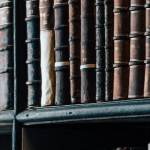David Lewis is a Ugandan lawyer currently doing his LL.M. at Harvard Law School. He holds an LLB from Makerere University, and a Diploma in Legal Practice from the Law Development Centre, Kampala. He is interested in constitutional law, democratization, policy analysis, access to justice for all, human rights, as well as public international law and international criminal justice.
Why did you decide to do an LL.M., and why at Harvard Law School?
I decided to do an LL.M. to get more knowledge and expertise in the fields in which I am interested. As an ardent believer in human rights, good governance and social justice, I wanted to broaden my understanding and get a comparative global outlook on them. Secondly, I wish to teach law at some point, and doing an LL.M. would help me get further grounded in the law and prepare me for this. Thirdly, it would increase my marketability.
Many people have a first law degree, so I think that the LL.M. helps one stand out and increase their chances in the job market. In my case, I perceived that most international NGOs, good law firms and universities (for teaching opportunities) would be looking for LL.M. holders.
Of course, there would be no better place to achieve these aspirations than at Harvard Law School. With their general LL.M., and over 400 courses, I would get an opportunity to make a diverse selection of classes in different areas, taught by some of the best professors in those fields. My other motivation was Harvard Law School’s international acclaim and respected alumni. I have always admired many former students of Harvard Law School who have left an ineradicable mark on their countries and the world, generally.
In my country, the few Harvard Law graduates are doing very well, and are well respected in academia, public service and politics. In addition, I was attracted by the funding opportunities that come with being admitted to Harvard Law School. Knowing that I would not have been able to fund the program on my own, I decided to apply to Harvard because of its amazing financial aid in form of grants and student loans to needy students.
How did you get in, and what do you think was crucial for your application’s success?
I can’t know for certain what was crucial for my admission. The first step is that I understood that it is extremely competitive to get in, but of course, they have to take someone, so no one should be overly intimidated! I thought that many people would have equally good grades, so I gave my application the best that I could. I started my application early enough, but didn’t submit until a few days before the deadline. I tried to get good recommendations from my undergraduate professors and write a compelling personal statement about an area of law that I am really interested in. I related it to what I aspire to do later in life. I kept it simple, focused, and made sure it was a true reflection of my beliefs and goals. And behold, I was admitted!
Does the program meet your expectations so far? Which is your favorite class and what was most surprising for you?
Yes, it does not just meet, but even goes beyond my expectations. Aside from very good professors and classes, there is so much learning and networking that goes on outside the classroom. It has been an enriching experience; having challenging discussions and debates on topical issues with students from all parts of the world is very intriguing. You get many perspectives on many issues. There are many fun events; parties, dinners, sports, trips etc.; you just can’t get bored.
I can’t point out any one course that I would consider my favorite. I mostly like courses which are taught by more experienced professors, and I have been lucky to take a number of them: Constitutional Law with Martha Minow, International Human Rights with Gerald Neuman, Foreign Relations Law with Jack Goldsmith and International Criminal Law with Alex Whiting. I am also doing a new course – Understanding Mandela – with Charles Ogletree, which is very exciting. An in-depth study about a revered leader whom I admire so much is very inspiring.
Generally speaking, so many things were and still are really surprising to me. Most importantly, sitting in a class where renowned professors strive to know each student by name, identify their needs and motivate them to achieve their goals ultimately has been such a surprise to me!
How do you like Boston and Cambridge so far?
Cambridge is generally great. I particularly like its relatively quiet nature with a multi-cultural diversity. There are many good places to see, many international restaurants in the vicinity, and the nightlife in Boston is great. As I am from Africa, the first few days were rather challenging to mingle freely with a multicultural society, but once you understand that everyone has a different background, you interact well with them. The healthcare at the University Health Services, the recreational services, transportation, accommodation and dining options, etc. are all superb.
I think my only challenge has been with the weather; having been lucky or unlucky to attend in the year when Boston has experienced the coldest winter, with snow mounting up as never before.
How do you think the LL.M. will help you to achieve your long-term career goals?
I am sure that an LL.M. from Harvard will help me a lot in my pursuit for justice, equality and human rights for all. As an advocate for human rights and good governance, sometimes all you will need is a platform so that you are heard when you speak. I am convinced a Harvard LL.M. will give me this standing in society. The course has also helped me very much to get international viewpoints of the issues I care about, and more importantly, the skills to pursue them. It has greatly contributed to my personal and intellectual development; giving me occasion to reflect on many issues that affect the world today and ask very hard questions, in the hope that one day I can be part of a breed that will bring about positive change. Most of this has come from the many guest speakers, symposia, conversations and dinners that are frequently organized at the school. I have already built strong relationships that I hope will go with me beyond the law school, and help me in my future academic and perhaps political pursuits.
Image: Abi Skipp / Flickr (cropped, rotated) - Creative Commons










